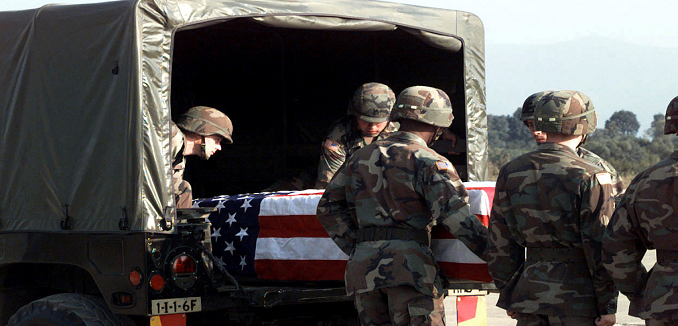Citing newly declassified reports, the U.S. State Department has revealed that the Islamic Republic of Iran is “responsible” for the killing of at least 608 American troops in Iraq from 2003 to 2011.
“This accounts for 17 percent of all deaths of U.S. personnel in Iraq from 2003 to 2011,” U.S. Special Representative for Iran, Brian Hook, said during a State Department briefing on Tuesday. “This death toll is in addition to the many thousands of Iraqis killed by the IRGC’s proxies,” he elaborated.
Iran’s Revolutionary Guard Corps (IRGC) is directly involved in the occupation of four countries: Iraq, Syria, Yemen, and Lebanon.
In his statement, Hook gave an update on the Trump administration’s ramped-up efforts to confront Iran’s illicit nuclear and non-nuclear activities. He revealed that, so far, “over 970 Iranian entities and individuals” and “more than 70 financial institutions” had been sanctioned.
“More than 100 major corporations withdrew from business in Iran,” Hook said. “Our sanctions have targeted a range of threats, especially Iran’s support of terrorism, missile proliferation, its nuclear program, human rights abuses, and others.” U.N. Security Council Resolution 2231, which implemented the 2015 nuclear deal, explicitly called on Iran not to develop ballistic missiles.
Hook noted further that the U.S. had disrupted the oil shipping network used by Iran to sponsor its illegal wars. He condemned Tehran’s destabilizing involvement in the conflicts in Syria, Lebanon, and Yemen, stating that “the effects of Iran’s meddling had been felt most sharply by the region’s innocent civilians.”
Instead of focusing on the needs of the Iranian people, Hook said, the mullah regime “has prioritized expanding the revolution abroad over sound economics at home.” The re-imposition of sanctions in November 2018 led to protests and strikes across the country, which the regime has brutally suppressed.
“An increasing number of human rights defenders, lawyers, journalists, and labor activists are being arrested or harassed. The Head of the Judiciary publicly described the protests as ‘sedition’ aimed at ‘dragging people to the streets to target the very foundation of the Islamic Republic,’” the U.N. Special Rapporteur on Iran, Javaid Rehman, reported in March.
[Photo: The U.S. National Archives]




